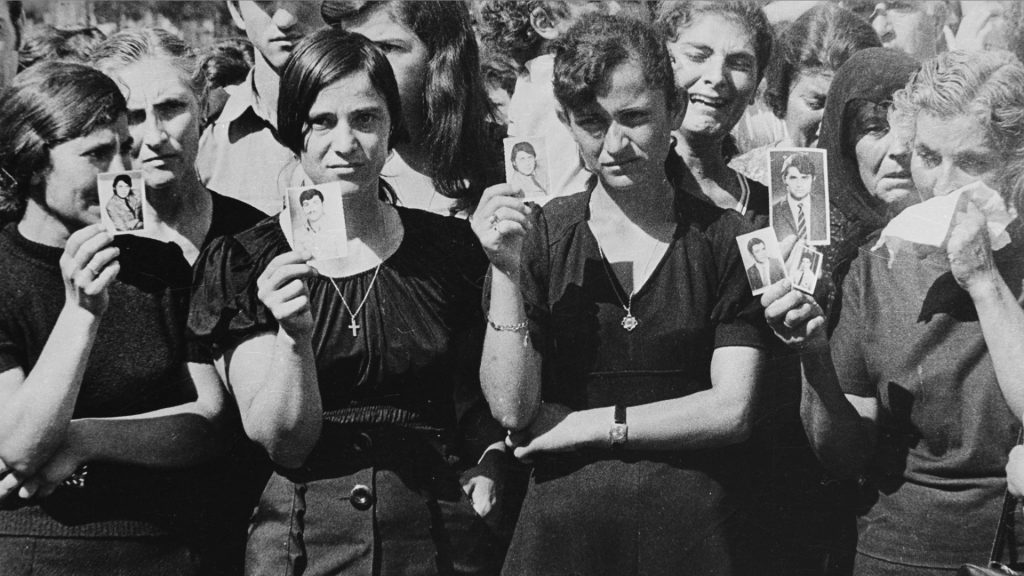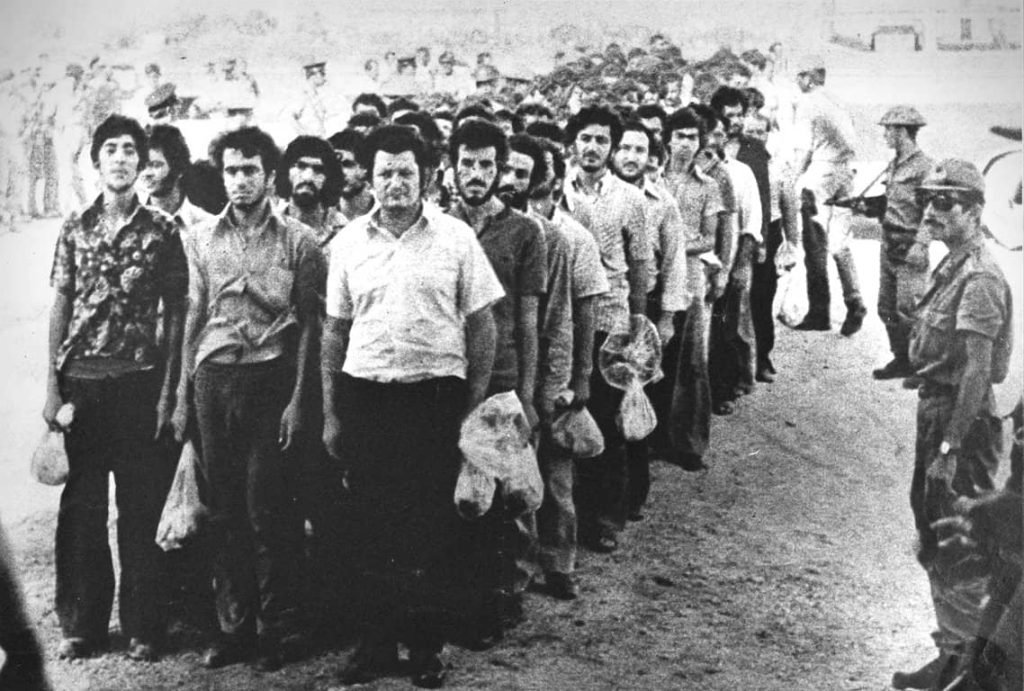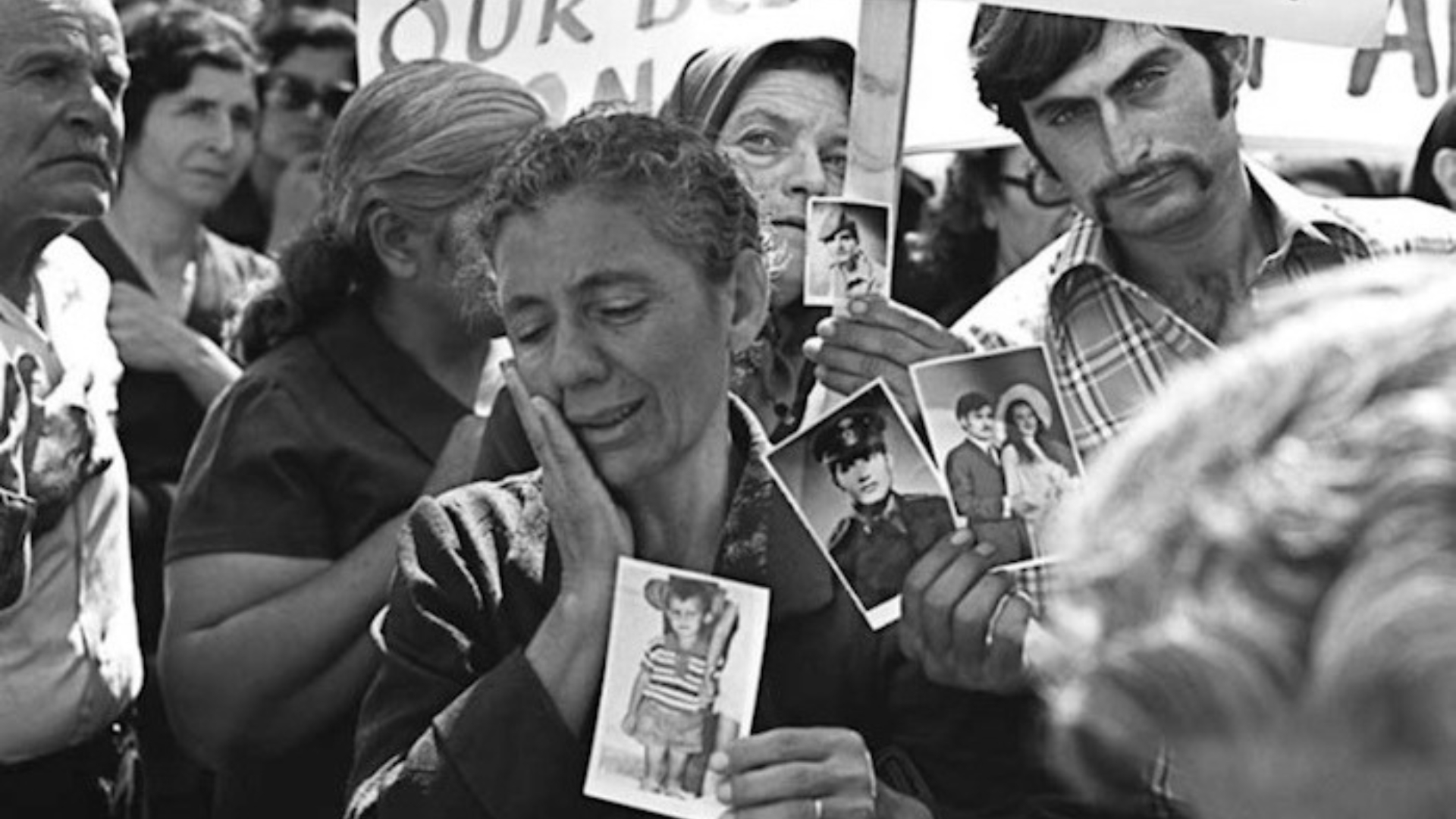By Michael Kyriakou.
In 1974, Swedish pop group ABBA won the Eurovision Song Contest, US President Richard Nixon resigned in disgrace, West Germany won the soccer world cup, the Cold War was into its third decade, the Carnation Revolution in Portugal ushered democracy and the end of colonial period, the Ford Pinto dominated markets globally, and the Irish Republican Army brought the war of liberation to London.
In 1974, inflation was 15.83 per cent, Sydney median house prices hit $36,800, a Big Mac was 49 cents and $1.20 got you a chicken dinner. There was no Facebook, Twitter or mobile phones yet.
In 1974, a regional superpower, on the pretext of “protecting” a minority, conducted a “special operation” code named “Attila” and conducted the largest ethnic cleansing of western Europe until Hitler and his associates in WWII.
The name of the operation speaks for itself. A not-so-subtle hint of the type of “special” operations the leaders of this group of modern day “invaders” had in mind.
The world has moved one since 1974, right? Well maybe no! Once again, a leader from the east, thinks “Attila” is relevant in 2023.
Russia, like Turkey in 1974, seems to think Atilla is not a historical figure, but rather Attila is a role model.
In 2023, just like 1974, once again a regional superpower claims its “people” are under “threat” and they must be saved with immense disproportional force, murder, mystery and mayhem. Once saved, the invading troops will stay for the minority’s own protection, indefinitely.

If the minority start to think they are pawns, an excuse for the “special operation” then just like Attila, who sent settlers throughout Europe, so too the regional power sends in “settlers” to ensure the locals are best “managed.”
Attila would be right at home in 1974, or even 2023.
Today, Cyprus is still invaded, the occupiers have focused on cultural domination, in the usual not so subtle ways. Changing the name of streets, towns, cities, building mosques, and the usual propaganda or in today’s spin, “education” on an industrial scale, reminding the minority that the troops are there for “their” protection.
Really? In 2023?
Could this argument still work today, in the age of the internet, where misinformation reads like a joke book not a fact book?
Cyprus is Ukraine of 1974. The world stood by and saw the carnage and murder, misery and mayhem, and not a finger was lifted.
On a per capital basis, Ukraine has yet to reach the destruction, dislocation of its citizens, the number of missing persons, endured for nearly five decades by Cyprus, and again, in 1974 not a finger raised.
Ukraine stands as a beacon of what a small vulnerable nation can do, with a little help from a few friends. The western world mobilised, and a proxy war is in full gear, with the citizens of Ukraine literally the meat in the middle, as carnage surrounds them.

Fortunately, the EU and NATO realise that if Russia is let off the hook, just like they did with Turkey, the consequence in 2023 is potentially global chaos.
It goes well beyond Ukraine, it will impact other scenarios such as Pakistan-India, China-India, Taiwan-China, it is a long list of global hot spots.
In 2023, Attila’s relevance as a role model is finally being challenged. The world is waking up to the consequences of invasion and occupation on the pretext of protecting a minority. The plans of a larger regional superpower cannot be appeased.
Ukraine deservedly is on the global, on the Canberra and even Macquarie Street agenda, its everywhere, all the time, our unwavering support is evident in much of our daily lives, on the internet, in the media, and coffee shop conversation. It’s everywhere.
The western world, indeed, the world is committed to draw the line in Ukraine – there will be no more Ukraine!
Really? How genuine is this commitment? Surely Cyprus is the real line in the sand!
Turkey, a NATO member and formerly the backbone of the western alliance in the east, has been playing the “be nice or we will change sides” game for over seven decades. Indeed, Turkey likes to be “paid” off to soothe its temper and scale back threats.
Look at the billions of euros and US dollars given by the EU to stop the flood of refugees from Turkey, and they are still coming to the EU.
The Attilas have been rewarded for centuries, which is how they have been managed, even humoured, then came Putin. Putin is being made an “example,” but the real example is in the EU waiting for its turn, for its “Ukraine moment.”
“Don’t forget us,” said a refugee from Cyprus, who was recently mistaken for a Ukrainian by an Australian politician.
What is the difference? Do not let Ukraine become Cyprus. Do not forget Cyprus. Cyprus’ cause for its liberty is Ukraine’s struggle for its sovereignty. The struggle continues.
The Cyprus Community of NSW Ltd together with the Justice for Cyprus (SEKA) Committee, with the support of the Greek Orthodox Archdiocese of Australia, the Greek Orthodox Community and all Greek Associations, supporters of the Cyprus people and their cause, organise commemoration services, wreath laying at Martin Place followed by a Cultural and Remembrance Program at the Cyprus Community Club Stanmore on July 23, 2023.

